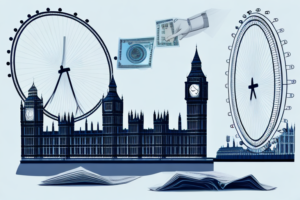Is an NDA i.e. a non disclosure agreement a legally binding document?
What all should you be including in an NDA and how to draft one?
These are just 2 of the many questions I’ll be covering in this blog on NDAs, i.e. Non-Disclosure Agreements. I have also attached a downloadable template for you so that you can use it the next time you need to send out Non Disclosure Agreements.
- Download the template for the Non-Disclousure agreement now – for FREE!!!
- What is a Non Disclosure Agreement?
- Why is a non disclosure agreement used?
- What is the difference between mutual and unilateral Non Disclosure Agreements?
- What should you include in a Non Disclosure Agreement?
- Common errors made in non disclosure agreements
- Summary
- FAQs
Fill out the form and download (for free) our NDA (Non Disclosure agreement) template now!
What is an NDA – non disclosure agreement?
In extremely simple terms, a Non Disclosure Agreement (NDA) is a legally binding document. This HR letter helps employers make sure that whenever they share information and details with anyone, the person/organization does not leak it to anyone.
It acknowledges the confidential agreement between 2 parties. In most cases, those 2 parties are the employer and the employee, but it could also include investors or other vendors. It protects the information from disclosure to any 3rd party outsider. This ensures that the employer can freely discuss and share sensitive information with the employee without fear of a leak of information.
Also, a new hire always has to sign the Non Disclosure Agreement and return it back to the employer.
Why is a non disclosure agreement used?
A Non Disclosure Agreement (NDA) is extremely important. This is because business owners very often discuss confidential and proprietary information with their employees or even sometimes 3rd party organizations.
Say, for example, a startup seeking funding needs to share many details with potential investors even before they get the investors on board. In such cases, how do they ensure that the potential investor will not share confidential details about the business with anyone else?
This is where a Non Disclosure Agreement comes into play! This is because it is a legal framework that employers use to protect the company from any information leak.
When we talk about protected information, we include things such as proprietary formulas, secret recipes (in restaurants), manufacturing processes, client lists, sales contact lists, accounting figures (that aren’t public) or any information specific to the company that is not in the public domain.
What is the difference between mutual and unilateral Non Disclosure Agreements?
So far we have seen what a Non Disclosure Agreement is. But now, we also need to understand that they have 2 types.
Mutual Non Disclosure Agreements
As the name suggests, this is basically a contract that is mutual. Both parties agree to not share information with anyone outside of the agreement.
Say, for example, if a vendor is providing new software, exclusively, to a big consulting company. Both, the vendor and the consulting company will sign a non-disclosure agreement, agreeing to not share any information with someone outside of the agreement.
Unilateral Non Disclosure Agreements
Here, the term unilateral is what is important. It suggests that one party in the agreement (in most cases an employee) agrees not to leak, distribute or share information given to him or her.
When a new employee is onboarded into a company they gain access to all sorts of content and information. This kind of non-disclosure agreement protects the employer from any information being passed on to competitors or anyone else.
What should you include in an NDA?
Now that we have seen why NDAs are so important and the different types, we move on to what needs to be included in an NDA
- The names of the 2 parties involved in the agreement. Even in the case of a unilateral agreement, mention the company details or employer information
- What does confidential means in the context of that agreement i.e. your definition of confidential
- Legal obligations or requirements of both involved
- Consequences if either of the 2 parties involved break or go against the agreement and/or accepted remedies
- Description and list of the information that is meant to be confidential and what is excluded or what are the exceptions to these cases
- Return of information (and medium of return) once the duration of the agreement is completed
- Which legal court has jurisdiction (of the NDA)
- Non-binding clause
- A place for both parties to sign at the bottom
Common errors made w.r.t. non disclosure agreements
Let’s see what are the things you must remember while writing a non disclosure agreement,
- AVOID GRAMMATICAL ERRORS!! Nothing worse than this to show the other person you don’t care.
- Don’t leave anything indefinite. You want to be as clear and specific as possible especially since this is a legal document.
- Avoid generic language.
- Don’t hand over any confidential information before the other party has signed the agreement. This may seem obvious, but very often people think they can trust the other person and that could end up making blunders.
- Don’t include a list of things that are either already known to the recipient of public knowledge in the description of what is to be confidential.
- People forget to provide guidance about how to deal with a compelled disclosure (meaning if the recipient of the information was forced to give out information).
Summary
Now, we have gone through many details about writing Non Disclosure Agreement. But I think the most convenient thing to do is to download the template by clicking here! Using a template such as this one will not only save time but will also ensure zero errors and that you haven’t left out anything important!
FAQS
Yes, an NDA is a legal document that protects information between 2 parties.
An NDA can cover a variety of things such as proprietary formulas, secret recipes (in restaurants), manufacturing processes, client lists, sales contact lists, accounting figures (that aren’t public) or any information specific to the company that is not in the public domain.
Usually, NDAs do not have expiry dates, because, that would imply that once the date has passed the secrecy of the information too has expired. That would mean that the recipient of the information could share it with anyone without any consequences!
Not to be considered as tax, legal, financial or HR advice. Regulations change over time so please consult a lawyer, accountant or Labour Law expert for specific guidance.
![You are currently viewing Non Disclosure Agreement [+ template] 9 points you absolutely cannot skip](https://asanify.com/wp-content/uploads/2022/04/blog-covers-2240-×-1500px-3-1.webp)




